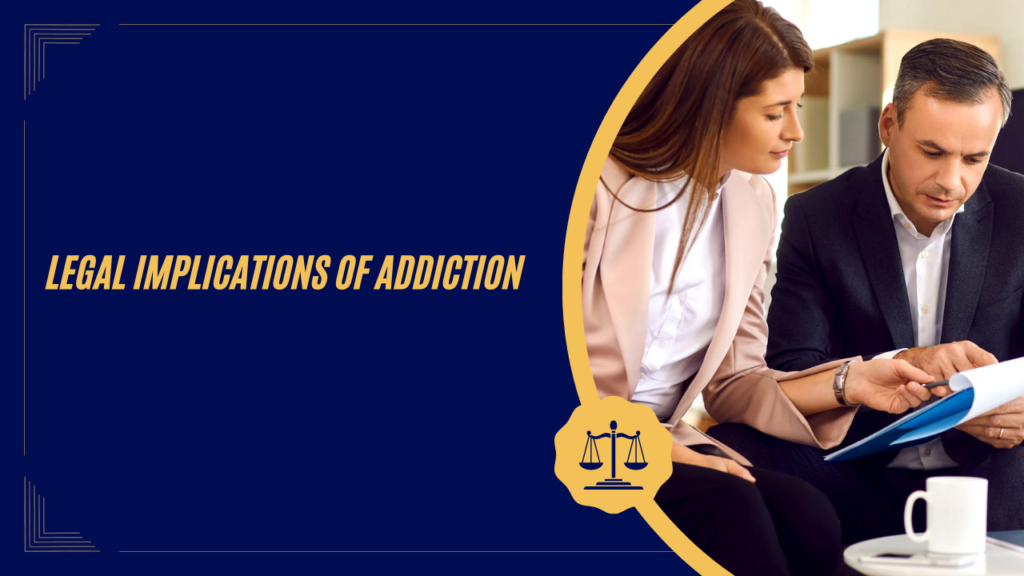
The intersection of law and addiction is a complex and often contentious area, where the legal system’s role in addressing substance abuse has significant implications for individuals and society. The legal implications of addiction span criminal justice, healthcare policy, civil rights, and family law, necessitating a nuanced understanding of how laws and regulations can both aid and hinder those struggling with addiction.
Criminal Justice System and Addiction
One of the most visible intersections of law and addiction is within the criminal justice system. Many individuals with substance use disorders find themselves entangled in the legal system due to drug-related offenses, ranging from possession and distribution to crimes committed under the influence or to support their addiction. Traditional punitive approaches have often failed to address the underlying issues of addiction, leading to high rates of recidivism and overcrowded prisons.
In response, many jurisdictions have implemented drug courts and diversion programs aimed at providing treatment rather than solely punishment. Drug courts offer a structured program that combines judicial supervision with substance abuse treatment, aiming to reduce recidivism and support recovery. Participants typically undergo regular drug testing, attend therapy sessions, and appear in court for progress reviews. Successful completion of the program can result in reduced or dismissed charges, offering a second chance for individuals to rebuild their lives.
Healthcare Policy and Legal Protections
Healthcare policy plays a crucial role in addressing addiction, with laws such as the Mental Health Parity and Addiction Equity Act (MHPAEA) mandating that insurance coverage for substance use disorders be on par with coverage for other medical conditions. This legislation aims to remove barriers to treatment and ensure that individuals can access the care they need. However, disparities in implementation and enforcement persist, leading to ongoing challenges in achieving true parity.
Legal protections also extend to individuals in recovery through laws such as the Americans with Disabilities Act (ADA). The ADA prohibits discrimination against individuals with disabilities, including those in recovery from addiction. This means that individuals cannot be denied employment, housing, or other services solely based on their history of substance use. These protections are vital in supporting long-term recovery and reintegration into society.
Family Law and Child Welfare
Addiction can have profound impacts on families, particularly in cases involving child custody and welfare. Family courts often face the difficult task of balancing the best interests of the child with the rights of parents struggling with addiction. In some cases, addiction may lead to the termination of parental rights, particularly if the parent is unable or unwilling to seek treatment.
However, family courts are increasingly recognizing the importance of supporting parents in recovery. Programs that offer parenting classes, supervised visitation, and family therapy aim to strengthen family bonds and promote recovery. Additionally, legal provisions such as the Family and Medical Leave Act (FMLA) allow individuals to take time off work to address their own or a family member’s addiction, providing crucial support during the recovery process.
Civil Rights and Harm Reduction
Harm reduction strategies, such as needle exchange programs and supervised injection sites, represent a pragmatic approach to reducing the negative consequences of addiction. These programs operate in a legal gray area, often facing opposition despite evidence of their effectiveness in reducing the spread of infectious diseases and connecting individuals to treatment.
Legal advocacy is essential in promoting harm reduction policies and protecting the civil rights of individuals with substance use disorders. By shifting the focus from criminalization to public health, harm reduction approaches seek to treat addiction as a medical condition rather than a moral failing, fostering a more compassionate and effective response.
Navigating the legal implications of addiction requires a multifaceted approach that encompasses criminal justice reform, healthcare policy, family law, and civil rights. By recognizing addiction as a complex and chronic condition, the legal system can better support individuals in their journey to recovery, ultimately benefiting society as a whole. As legal frameworks continue to evolve, ongoing advocacy and education are essential in ensuring that laws and policies reflect the latest understanding of addiction and its treatment.